International Reports
We’ve been working with the British Council and others to carry out research and produce reports looking into the global impact of the social enterprise movement. These mapping exercises are establishing how social enterprises are operating across the world. We have also been making the case for social enterprises to feature more prominently in global efforts to reduce poverty and inequality.
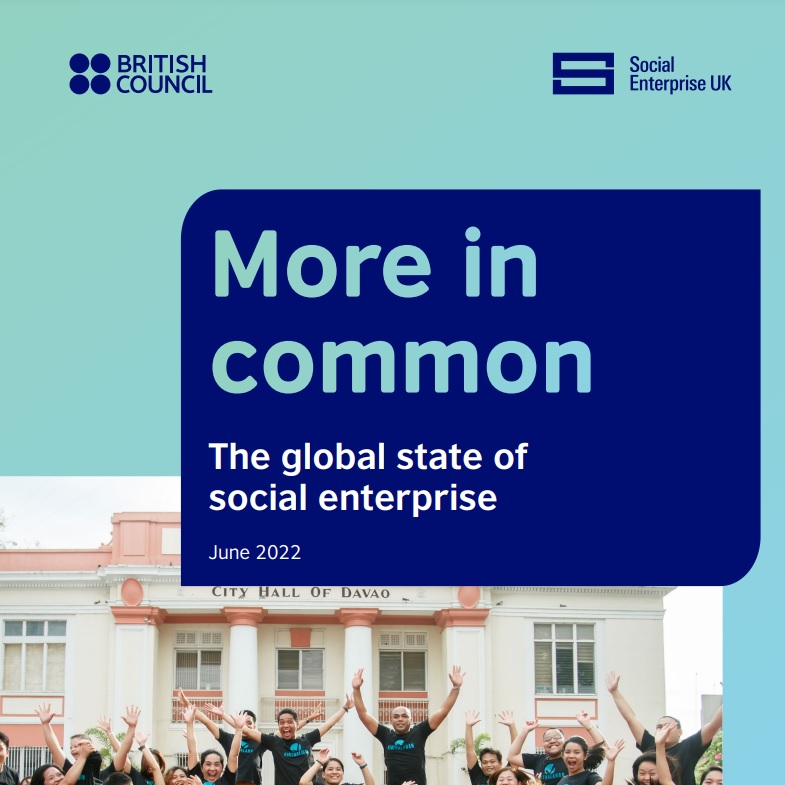
More in Common – The Global State of Social Enterprise
This is the first study to provide a genuinely global picture of social enterprise. The culmination of over five years of work, it draws on data, insights and case studies in 27 countries to provide what is believed to be the first estimate of the total size of social enterprise around the world. Moreover, it offers comparisons between social enterprises operating in diverse settings and highlights commonalities and differences, patterns and challenges.
Crucially, this report will equip policy makers, social impact investors and other inclusive economy actors with information and evidence to more effectively support and measure the growth of social enterprise and the impact economy.
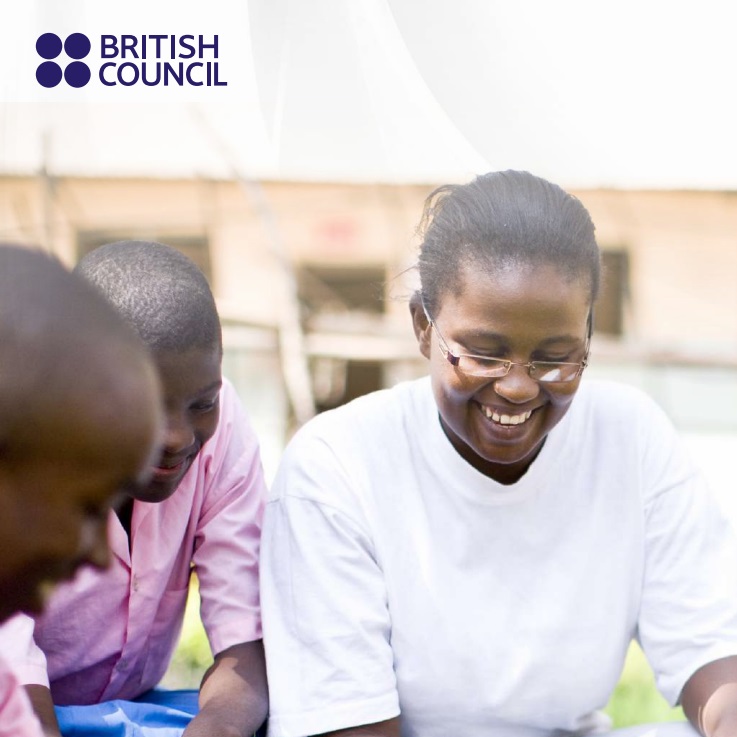
State of Social Enterprise in Nigeria
FEBRUARY 2022
This report reveals the state of social enterprises in Nigeria. The findings are timely. Governments and communities are looking to minimise the economic and social damage caused by Covid-19 and, in the longer term, see the pandemic as an opportunity to rebuild economies on a fairer, more inclusive footing. As businesses that combine positive social and environmental impact with financial sustainability, socialenterprises have a vital role to play. The study reveals a burgeoning social enterprise landscape with 72 percent of the surveyed social enterprises having been set up since 2014 and 43 percent since 2018. Some 77 percent of social enterprise leaders are under 45. Yet, the study also found a lack of awareness of and affiliation to the social enterprise movement, with just 25 percent of businesses that we could define as social enterprises self-identifying as such.

The State of Social Enterprise in Algeria
Social enterprises are on the rise in Algeria, particularly during the last three years, but their growth builds on deeply rooted traditions of co-operation and mutualism and has benefited, more recently, from EU-funded development programmes.
This survey finds that social enterprises are active in a range of areas, ranging from arts and crafts to food and nutrition, and from clean technology to tourism and education. They seek support in a range of areas, notably access to finance, legal support and access to markets.
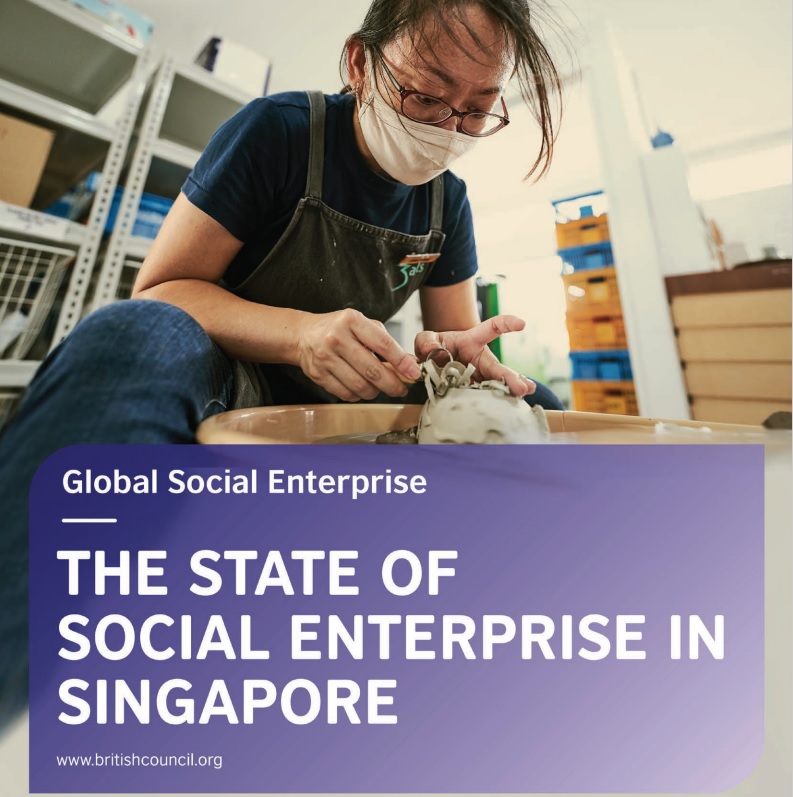
The State of Social Enterprise in Singapore
2020
Social enterprises are empowering women and youth in Singapore, where 64 per cent of social enterprises are led by women, compared to 26 per cent of all businesses, and 40 per cent are led by youth.
Although there was a sharp drop in new start-ups in 2020, 67 per cent of Singapore’s social enterprises were founded in the last five years and they are addressing critical social issues, notably by providing support for low income families, people with disabilities, women and girls, and vulnerable children and youth.
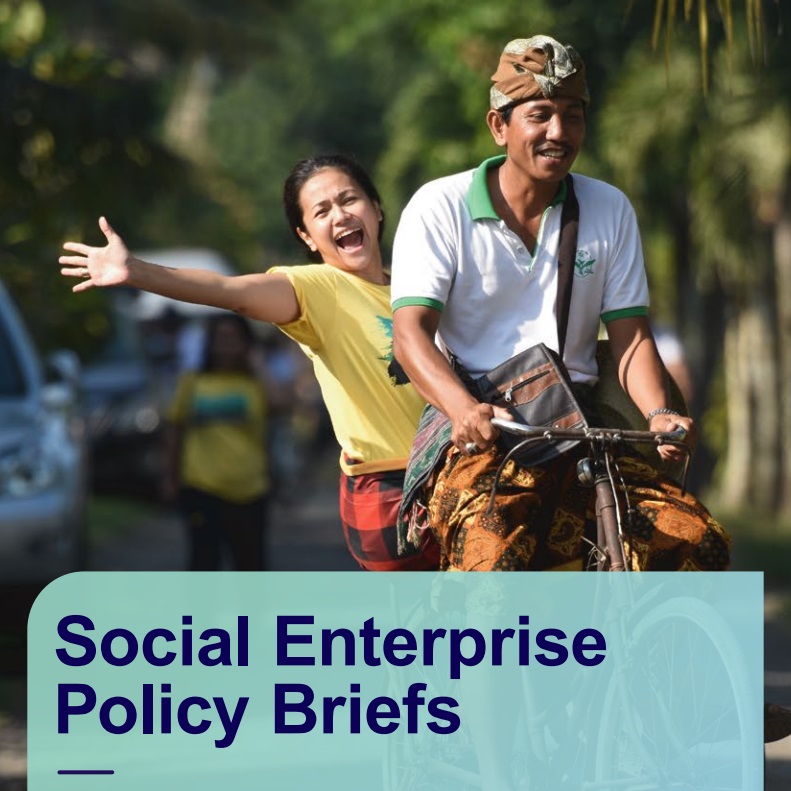
Social Enterprise Policy Briefs
A series of policy briefs looking at the key statistics about the social enterprise movement in eight countries in South Asia and the Pacific – Bangladesh, Indonesia, Malaysia, Myanmar, Pakistan, The Philippines, Sri Lanka and Viet Nam.
The British Council and United Nations Economic and Social Commission for Asia and the Pacific (UNESCAP) signed a strategic partnership (MOU) in Feb 2017 to support policy makers and ecosystem builders in creating a more enabling environment for social enterprise and social impact investment. These policy briefs are supported by UNESCAP, the British Council and Social Enterprise UK
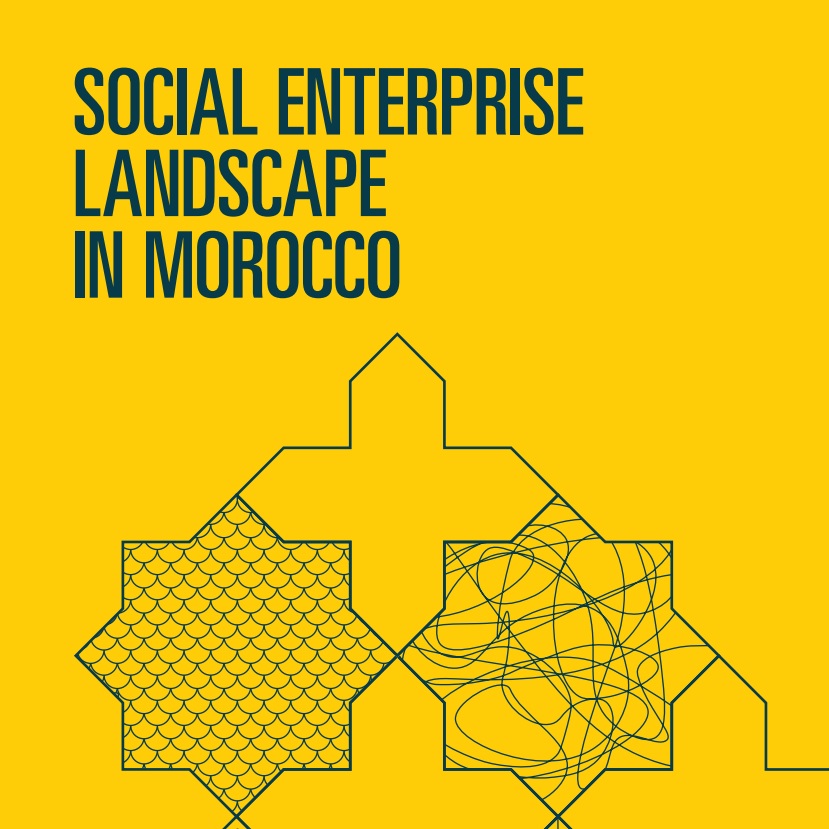
Social Enterprise Landscape in Morocco
2019
The ecosystem for social entrepreneurship grew substantially in the five years between this 2019 survey and the first study in 2014. Moroccan social enterprises are predominantly led by young, highly educated entrepreneurs from urban areas who are primarily seeking to create employment opportunities and improve local communities. The challenges they face include access to finance and lack of expert business support, and the report recommends increasing the provision of technical, financial, and policy support to social entrepreneurs and devising strategies to facilitate access to wider markets.
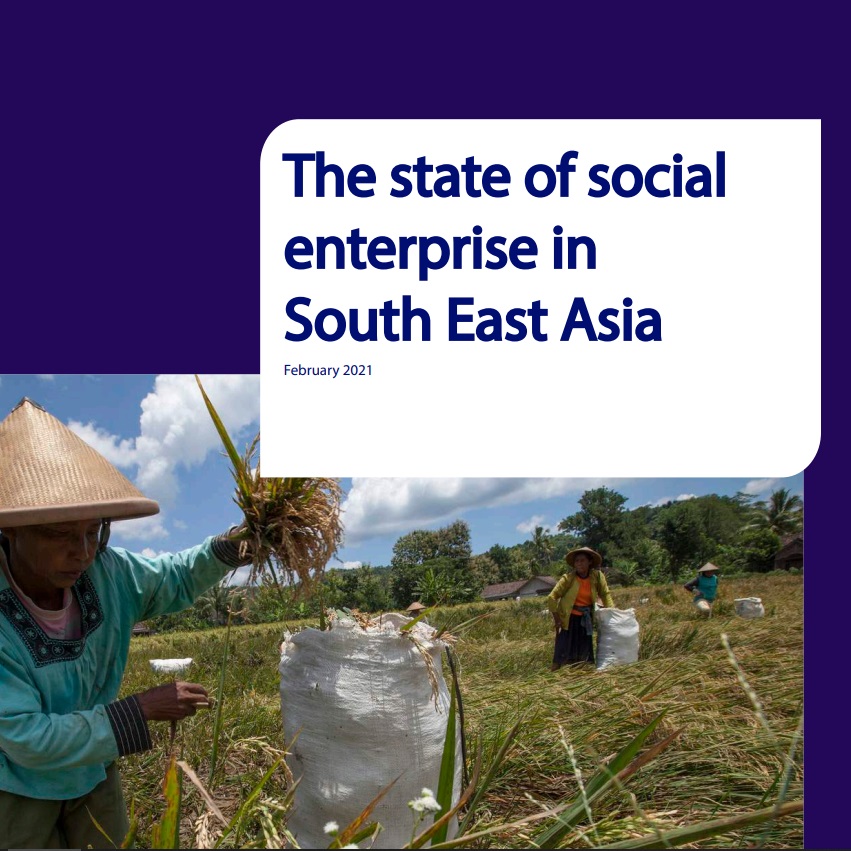
The State of Social Enterprise in South East Asia
February 2021
The British Council has worked with Social Enterprise UK, the United Nations Economic and Social Commission for Asia and the Pacific, and others to map the state of social enterprise over the past few years in Hong Kong, China; Indonesia; Malaysia; the Philippines; Singapore; Thailand and Viet Nam.
This report is the culmination of nearly five years of research bringing evidence together to provide comparisons between social enterprises operating in the South East Asian region to highlight commonalities and differences, patterns and challenges.
This study also considers the policy and support ecosystems for social enterprise in many countries, draws conclusions and makes recommendations based on the evidence.

The State of Social Enterprise in Hong Kong
2020
The sector is growing rapidly in Hong Kong, where 49 per cent of all social enterprises were founded in the past five years. They address a range of needs, from support for the elderly and health and wellness activities, to the development of solutions to waste and recycling.
This in-depth research offers insights into the social enterprises and the entrepreneurs that lead them, together with the barriers they face, and recommendations for supporting their growth

State of Social Enterprise in Thailand
2020
This report looks into the state of the social enterprise sector in Thailand, showing a growing community of businesses operating in diverse industries from education and health to fisheries, agriculture and livestock. They are more likely to be led by women than traditional businesses and just over half earn all their income from commercial activities.
They are delivering impact for low-income families, elderly and youth beneficiaries, among others, and that they are resilient and agile, as reflected in their ability to adapt to the Covid-19 pandemic.
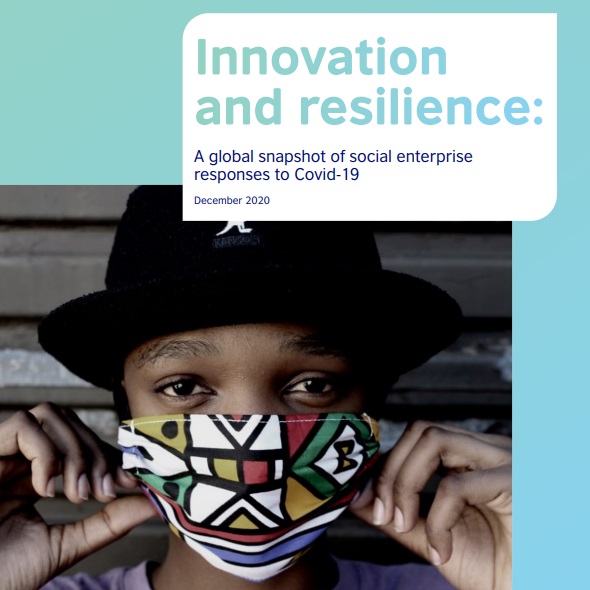
Innovation and resilience: A global snapshot of social enterprise responses to Covid-19
December 2020
In August and September 2020, SEUK and the British Council ran a global survey of social enterprises to explore the impacts of the COVID-19 pandemic. This report presents findings from that survey, presented by region, which provide information about how social enterprises have responded to the crisis.
The report explores the impact on different demographic groups as well as variations across global regions, it looks at existing and required support provision, growth expectations and impacts on social enterprises as generators of employment.

State of Social Enterprise in Sudan
2020
This survey estimates there are 55,000 social enterprises in Sudan. Although the term ‘social enterprise’ is relatively new in the country, the concept of trading for a social purpose is well established, and the sector grew rapidly until March 2020, with 65 per cent of social enterprises having been set up since 2013.
The Covid-19 pandemic is posing serious challenges for Sudanese social enterprises, but they could play a key role in rebooting the economy on a fairer, more inclusive footing.

Investing in Creative and Social Enterprise in Indonesia
2020
This research looks at the investment landscape surrounding social and creative enterprises in Indonesia. We helped deliver this research as part of the British Council’s Developing Inclusive and Creative Economy (DICE) programme which aims to address economic and social exclusion through supercharging creativity, enterprise and collaboration.
The study was carried out in collaboration with the United Nations Economic and Social Commission for Asia Pacific (UNESCAP)
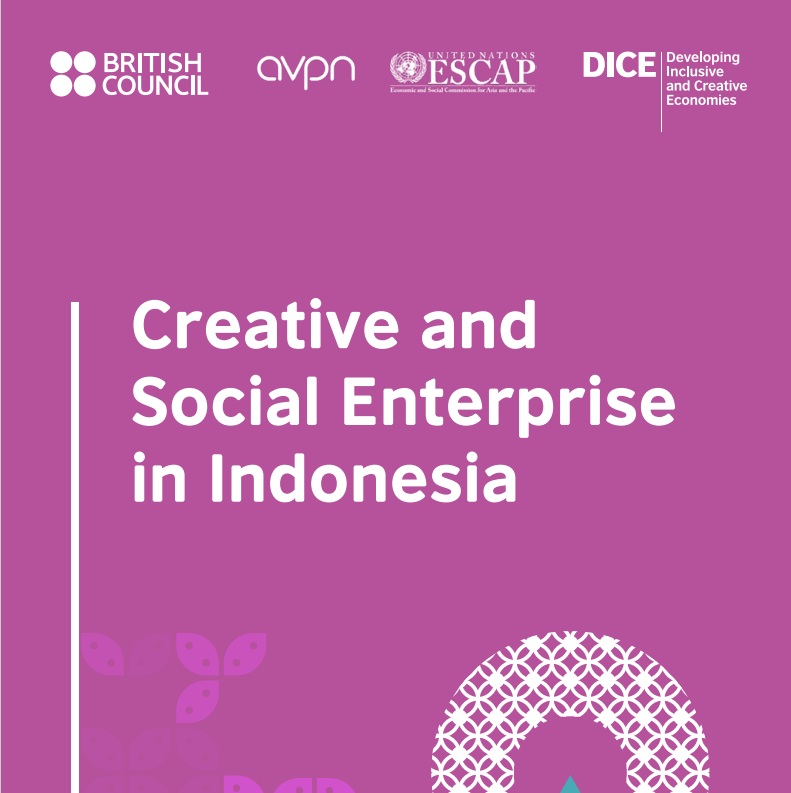
Creative and Social Enterprises in Indonesia
2020
This research looks into the scale and impact of social and creative enterprises in Indonesia as well as some of the key challenges these businesses are facing. We helped deliver this research as part of the British Council’s Developing Inclusive and Creative Economy (DICE) programme which aims to address economic and social exclusion through supercharging creativity, enterprise and collaboration.
The study was carried out in collaboration with the United Nations Economic and Social Commission for Asia Pacific (UNESCAP)

Creative and Social Enterprise in South Africa
We supported this report as part of the British Council’s Developing Inclusive and Creative Economy (DICE) programme which aims to address economic and social exclusion through supercharging homegrown creativity, enterprise and collaboration. The work in South Africa was carried out by lead consultant Simanye, along with project partners The Coloured Cube and several key experts.
The report looks into the scale and impact of social and creative enterprises in South Africa as well as some of the key challenges these businesses are facing. It shows that social and creative enterprises are an emerging phenomenon in South Africa, with most being under 5 years old, they are employing higher numbers of women and young people and have a diverse leadership.

State of Social Enterprise in Jamaica
2019
While the Jamaican landscape of social enterprise (SE) appears to be in its infancy, significant work has been done over the last 10 years to develop the sector, by international development partners, local private sector companies and domestic public bodies.
This mapping exercise provides further insight on the current situation within which social enterprise in Jamaica operate; the current size of the sector; the barriers and challenges faced by these enterprises as they attempt to grow; issues around regulation and legislation; the tools and facilities that SEs need to grow and the legal framework that SEs can operate under. The work was carried out by the British Council, FHI360, USAID, Social Enterprise UK

State of Social Enterprise in Malaysia
2019
The State of Social Enterprise in Malaysia provides a rich and useful overview of the size, scale, and scope of the social enterprise sector in Malaysia, which is growing rapidly, delivering impact for a range of beneficiaries, and attracting government support, but faces challenges in areas such as public awareness and access to funding.

The State of Social Enterprise in Turkey
2019
Social enterprise is a comparatively new phenomenon in Turkey with growing interest from academics, civil society actors, policymakers and practitioners. This report looks closer at the social enterprise landscape in Turkey and demonstrates demonstrates the powerful role that social enterprise can play in providing opportunities for diverse groups.
This research was commissioned by the British Council and conducted by a consortium led by TED University and İstasyonTEDU. Other consortium partners are Ashoka Turkey, İstanbul Bilgi University, Koç University, Koç University Social Impact Forum (KUSIF), Middle East Technical University and Mikado.

Social Enterprise in Vietnam
March 2019
This survey finds that interest in social enterprise is growing significantly in Vietnam, one of Asia’s most dynamic countries, among budding entrepreneurs, NGOs, policy makers, funders and academics. Most social enterprises are on a mission to create jobs.
They provide support disadvantaged people and are nurturing spaces for women and young people to take on leadership roles.
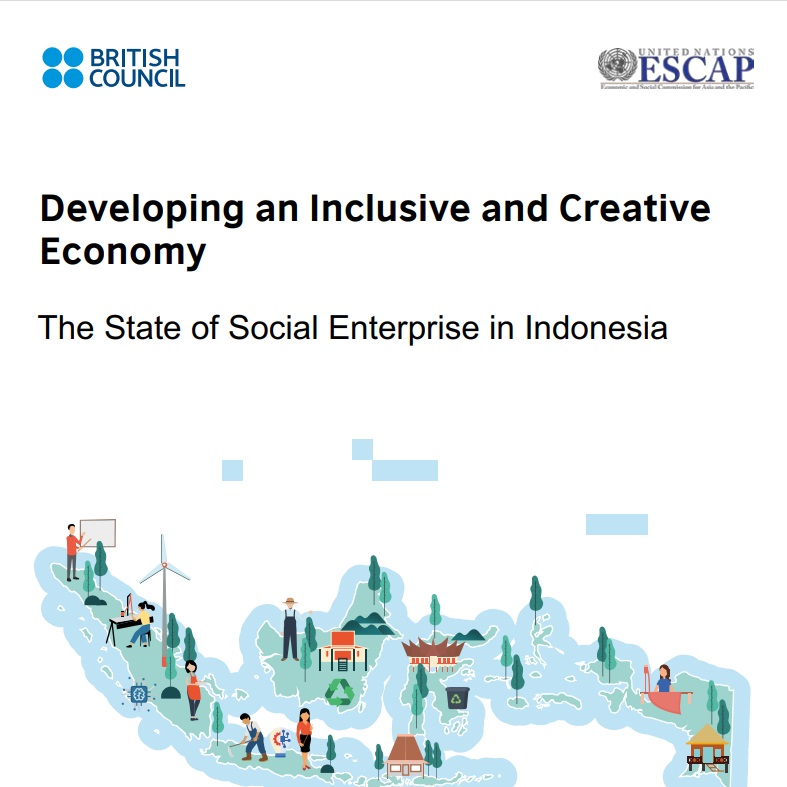
State of Social Enterprise in Indonesia
Social enterprise is growing rapidly in the world’s fourth most populous country, generating employment, supporting communities, and addressing inequalities.
Among the survey’s many noteworthy findings are that there is gender parity in the leadership of social enterprises and that their top sector of business activity is the creative industries.
